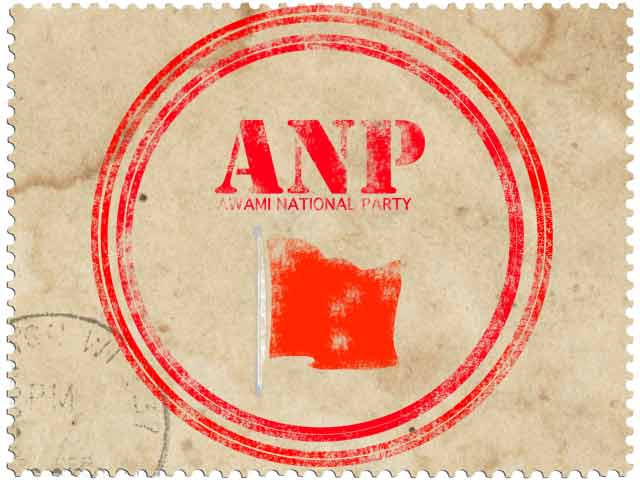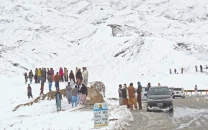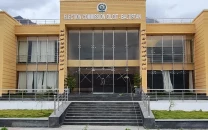Discussion on manifesto: ANP to expedite devolution if voted to power
Commits to fair distribution of water resources, 6% of GDP for education.

Against the backdrop of the war on terror, peace and security have remained an important aspect of the manifesto with the ANP taking a more hardline approach towards terrorism. PHOTO: FILE
The discussion was held at the Sustainable Development Policy Institute.
Against the backdrop of the war on terror, peace and security have remained an important aspect of the manifesto with the ANP taking a more hardline approach towards terrorism.
“We’re fighting a war in our region where our party members and leaders are targeted and killed. We will only negotiate on the basis of the Constitution,” he said. The manifesto also introduces a standard policy for compensation, including a comprehensive public insurance policy, for victims of sectarianism, terrorism and violence, along with the establishment of a martyrs’ cell in the provinces and Federally Administrative Tribal Areas to ensure well-being of victims’ families.
The manifesto managed to impress with the ANP’s take on various issues, but lacked clear policy guidelines on how to achieve most of its objectives. The ANP commits political will to provincial autonomy with the centre retaining control of defence, foreign affairs, currency and communications and pledges full implementation of the 18th Constitutional Amendment, particularly with reference to oil, gas, water and power, energy, health and education.
In the manifesto, the ANP will build on policies of devolution of power to the provinces started during the last three years. Water distribution was also highlighted in the manifesto which stated that the party believes in fair and just distribution of water resources particularly of the Indus river system and it will strongly oppose usurping of water rights of the provinces.
The discussion was riddled with a clash of opinions as questions and answers volleyed back and forth between Senator Muhammad Adeel of ANP and journalist Mubarak Zeb Khan which prompted some to intervene in order to maintain decorum. According to Mubarak, while the manifesto talks in length about women’s rights the method to quantify those rights cannot be seen anywhere in the manifesto. As way of an answer, Adeel said parents receive Rs200 per month to encourage them to send girls to school. Centre for Civic Education Executive Director pointed out that the manifesto managed to retain most of its secular spirit with a clear statement on equality for all regardless of religious or ethnic background.
The social sector and education were promised ambitious budget allocations by the ANP. The manifesto states that education should remain a provincial subject with 6% of GDP allotted to it. ANP also takes up the issue of textbook reforms proposing to eliminate hate material in the manifesto.
Published in The Express Tribune, April 9th, 2013.
idi-font-size:11.0pt;font-family:"Fedra Serif Dis Regular"; mso-bidi-font-family:"Fedra Serif Dis Regular";color:black;text-transform:uppercase; mso-ansi-language:EN-US'>
Published in The Express Tribune, April 9th, 2013.


















COMMENTS
Comments are moderated and generally will be posted if they are on-topic and not abusive.
For more information, please see our Comments FAQ